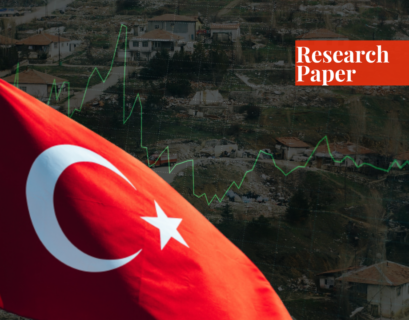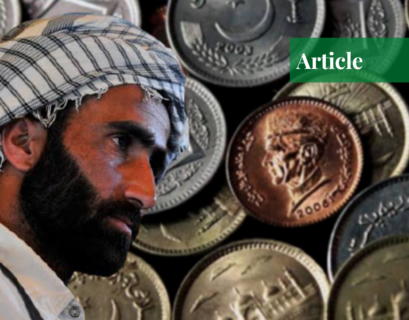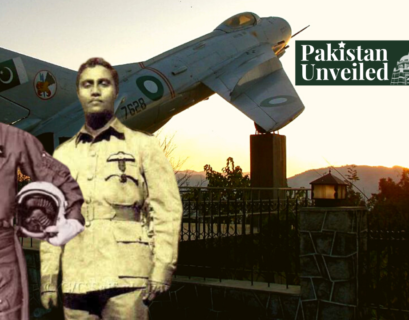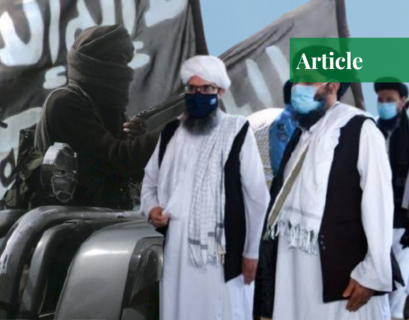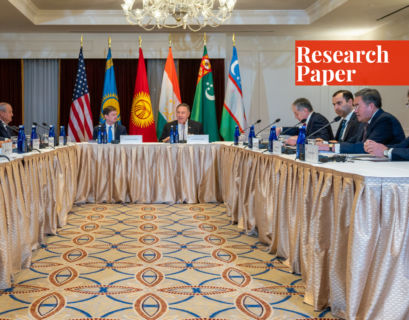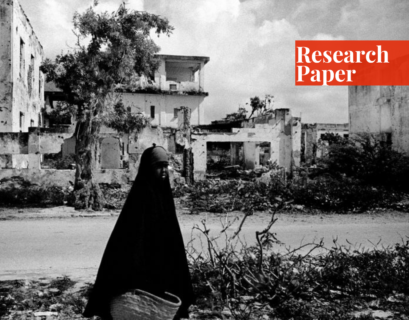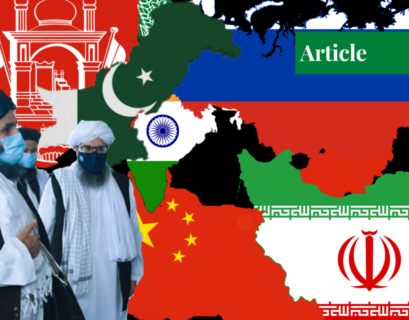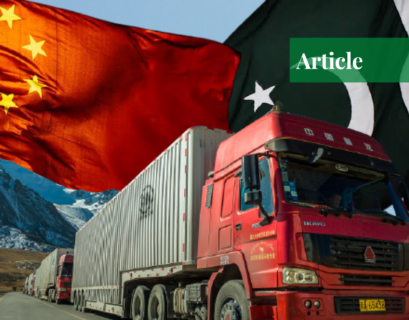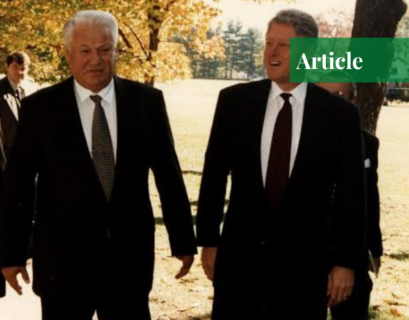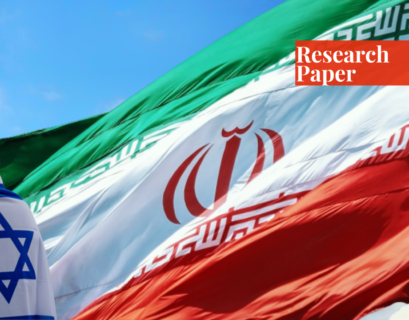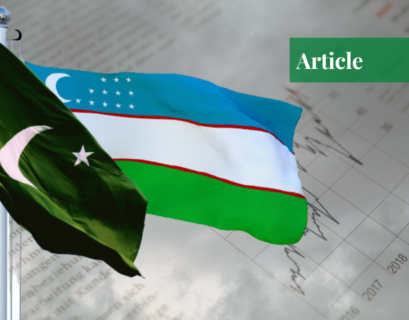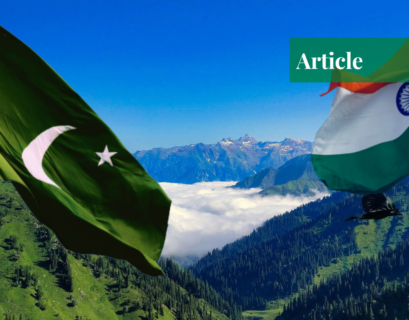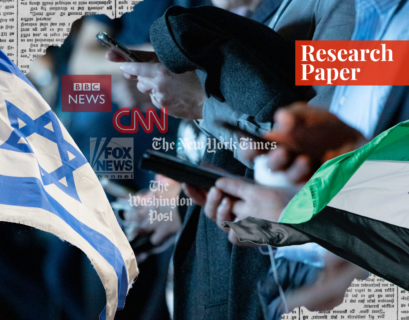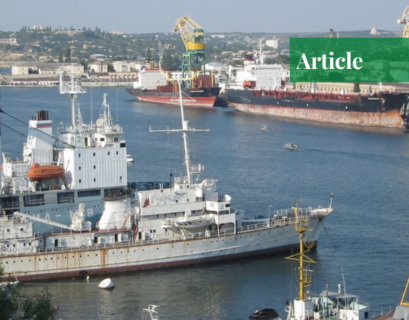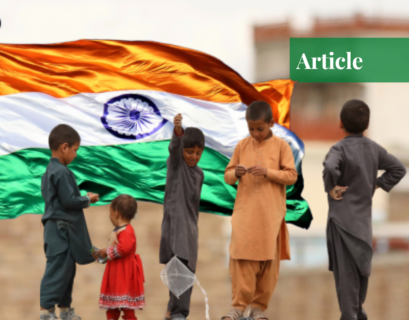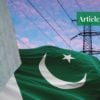The Singapore Model Explained & Lessons for Pakistan
Since its independence in 1965, Singapore has come a long way. Now, it ranks as the 5th largest recipient of foreign direct investment (FDI) worldwide. The state is also renowned for its high living standards, public administration, and commendable infrastructure. The author notes that the “economic miracle” has achieved this by letting go of its colonial baggage, reforming its education curriculum and public sector, and successfully establishing a national identity without assimilating its multi-ethnic population. The author asserts that while Pakistan’s identity and geopolitical issues are more complex than that of Singapore, the Singaporean model can still provide the state with lessons in nation-building and identity construction.
The Economic Growth in Turkey Post the 2000-01 Turkish Financial Crisis
Although the two consecutive financial crises of 2000 and 2001 shook Turkey’s economy to the core, they also paved the way for major economic reform.
Against that backdrop, the author, Nimra Dawood, reflects on the remarkable economic development witnessed in Turkey shortly after the financial crises.
The Economy of Pakistan & the Possible Impact of the Taliban Government
The Taliban takeover in Afghanistan has significant implications for the regional actors, particularly for Pakistan. The author notes that the fall of Kabul could negatively influence the economy of Pakistan. She asserts that with the border between the two states open, the possibility of Pakistan facing another refugee crisis, a drug trafficking problem, and terrorism, has also increased. These issues will ultimately cause the economic growth of Pakistan – which improved by 3.94% in 2021 – to decline and undermine the progress of the developmental projects in the state.
Group Captain Saiful Azam and Air Commodore Sattar Alvi: A Tale of Two Shaheens
The author, Damiya Saghir, uncovers two heroic figures in the Pakistan Air Force (PAF) and their celebrated accomplishments.
Introducing Group captain Saiful Azam and Air Commodore Sattar Alvi – two daring and wonderful air fighters.
The Taliban Leadership vs ISKP in Afghanistan: A Cause of Concern?
With the international community scrutinizing every move made by the Taliban government, they have decided to portray a softer approach w.r.t. women/human rights.The author notes that while the Taliban are busy trying to seek international recognition, the group’s rival faction, the Islamic State of Khurasan Province (ISKP), can use this as an opportunity to recruit ground-level Taliban soldiers. The rise of ISKP—an offshoot of ISIS—not only presents a challenge to the authority of the Taliban regime but also to the regional stability of South Asia. It could eventually result in the amplification of terrorist activities in the region.
Foreign Policy in Central Asia: Discontinuing the Soviet Legacy?
In a world motivated by soft power, states steer and adapt their foreign policies according to the evolving nature of global affairs.
Central Asian states are no exception to this reality, especially since they are motivated by geostrategic and geoeconomic interests.
The shifting world order presents both interests and risks, and hence they must carefully design their foreign policies – and hedge their bets. Image credits: U.S. Department of State | Flickr
The Civil War in Somalia Explained
Somalia has been in a constant state of civil war since the 1980s. Today, almost 3 million people require assistance in Somalia. The influence and conflicting interests of Ethiopia, Al-Shabaab, and the state’s warlords have prevented the establishment of peace in the African state. As a result of this conflict, attacks against civilians, violence against women and girls, corruption, and unemployment have become increasingly prevalent. The author notes that with the current peace process impeded and a pandemic threatening the state, the situation in Somalia is likely to worsen, if not addressed timely.
The Taliban Government in Afghanistan: Implications for Pakistan, China, India, Russia & Iran
The conclusion of the war in Afghanistan played out in the Taliban’s favour. With the Taliban now in power and forming the government, their alliances, which the author noted in his previous piece, will rearrange the geopolitical landscape of the region while also determining the fate of the global powers. Featured image credits: Ministry of Foreign Affairs, Pakistan
Will CPEC Usher in a Digitalization Revolution in Pakistan?
Recognizing the worth of the world’s digital economy, the incumbent government of Pakistan has set off on a path to digitalize the state. In 2018, the government adopted the Digital Pakistan Policy and introduced certain fiscal measures to facilitate the digital transformation of Pakistan and increase investment in the state’s IT sector. Furthermore, through CPEC, China has invested in the development of Pakistan’s digital infrastructure by introducing several projects which will enhance digital connectivity.
Russian Relations with the US Post-Cold War
After the disintegration of the Soviet Union in 1991, the newly formed Russia, under the leadership of Boris Yeltsin, pursued democratic policies which led to somewhat cordial US-Russia relations. The author notes that while the two states cooperated on matters of regional security and nuclear proliferation, both exhibited a strong distrust in each other. Russia viewed the US denial of its sphere of influence and the American adventurism with suspicion and pursued hardline policies under Vladimir Putin. The author explains that despite Putin’s assertive stance, Russia has continued to build cordial relations with its neighboring states and the West. However, this cooperation ends when the American and Russian interests clash.
Iran-Israel Relations & Russia’s Mediation Diplomacy
The research paper focuses primarily on the different phases of diplomatic relations between Iran and Israel – two strategic states of the Middle East.
The author highlights the strategic role of Russia as a mediator between the two states to show how in order to pursue their national interests, states play out their part in international politics with direct bearing on other states at the national and international level.
Pakistan-Uzbekistan Relations: Bilateral Trade & Cooperation
After the collapse of the Soviet Union, Uzbekistan emerged as an independent state, and was determined to stabilize itself by way of assuming a market-centered economic system.
The Pak-Uzbek relations are bound by a shared religious and cultural background. Trade agreements and joint railway projects can strengthen the ties between the two countries, and may pave the way for an even stronger relationship in thee future.
Jammu and Kashmir’s History: An Introduction to the Issue
The Kashmir issue remains elusive, and many, if not all, know of the current conflict between India and Pakistan over Kashmir.
The author seeks to apprise the readers of the origins of the former princely state. It all began with the East India Company selling Jammu and Kashmir – the second-largest principality during British rule – to Gulab Singh.
Pro-Israel Media Coverage of the Israel-Palestine Conflict
Being one of the longest conflicts in the Middle East, the Israel-Palestine conflict has remained in the eye of the international media. The author notes that the news coverage of the conflict has never been neutral. Through an analysis of the news coverage of the BBC, The New York Times, The Times of India, and Al-Jazeera, she reveals how misrepresentation, framing, linguistic determinism, and media manipulation can be observed in the news coverage of the Israel-Palestine conflict. While this media manipulation has benefited them and served their interests, it has impacted how the audience of specific media outlets views the conflict.
The Russia-Ukraine Conflict Over Crimea: A Constructivism Approach
Crimea had been a supplier of heavy raw material to the Soviet Union and was a hub of industrial and agricultural resources. Ukraine wanted to partner with the EU and the US in expanding its international market, but Russia saw the US-Ukraine Crimean gas collaboration as a threat to its economy – and hence advanced its forces to annex Crimea. Ms Muskan Moazzam explains the differing actions of EU member states towards the Russia-Ukraine conflict in light of the constructivism theory. She holds that state behaviour is subject to change, depending on the actions and importance of the concerned states. Featured Image Credit: “Former home of the Soviet Black Sea Fleet (2005-08-110)” by Argenberg is licensed under CC BY 2.0.
Water Shortages in Pakistan: The Urgency for Water Governance
An increasing population, an explosive neighbor, and ill-equipped water management can positively damage Pakistan’s water security.
Mr. Muhammad Hamza Sharif applauds the initiatives of the PTI government and recommends institutions to raise awareness of the water issue. He also hopes for water governance to be given due importance.
How India’s Investment in Afghanistan Has Failed Post-US Exit
In the last two decades, India has invested $3 billion in Afghanistan on infrastructure development. Through numerous projects, it has not only maintained its presence in the state but also backed the former Afghan government of Ashraf Ghani. The recent takeover of the Taliban in Afghanistan has placed India in a tight spot and sent years of Indian investment down the drain. India’s blatant anti-Taliban policy has made it difficult for it to maintain good relations with Afghanistan and sponsor terrorism in Pakistan through the Afghan soil. Moreover, the possible emergence of a new regional bloc—comprising of China, Russia, Pakistan, Afghanistan, and Iran—after the Taliban takeover has further threatened India’s influence in the region.

